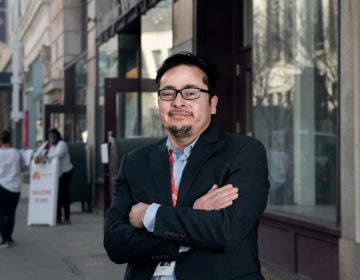This story is part of The 47: Historias along a bus route, a collaboration between WHYY’s PlanPhilly, Emma Restrepo and Jane M. Von Bergen.
This article is written in a combination of English and Spanish. To read entirely in English, click or tap here o para leer en español, haga clic o toque aquí.
When Luis Uribe was growing up in Puebla, Mexico, soccer, or fútbol, as it is known in every Latin American country, was his life.
It still is.
“Yo jugaba fútbol cuando era joven, yo amaba el fútbol y todos los domingos jugaba fútbol”, Uribe said.
So, when he came to South Philadelphia nearly 20 years ago, the first thing Uribe did was try to find another Sunday game. He’d go to the park, and sure enough, he found fútbol — and friends.
“En aquellos tiempos se empezó a hacer una liga pequeña de adultos y pues yo encantado. Me uní a esa liga porque era lo quería, jugar fútbol”, dijo Uribe.
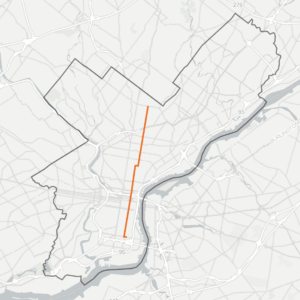
Uribe had no idea that those modest pick-up adult leagues would turn into a big fútbol program for 80 families, with many enrolling three or four children. Most games are played at the Capitolo Playground on Ninth Street in South Philadelphia, just two blocks away from the Route 47 bus.
The futbol players? They call themselves the Wolves, or Los Lobos.
“En este momento, en el Club Deportivo Los Lobos tenemos aproximadamente 180 niños”, dijo.
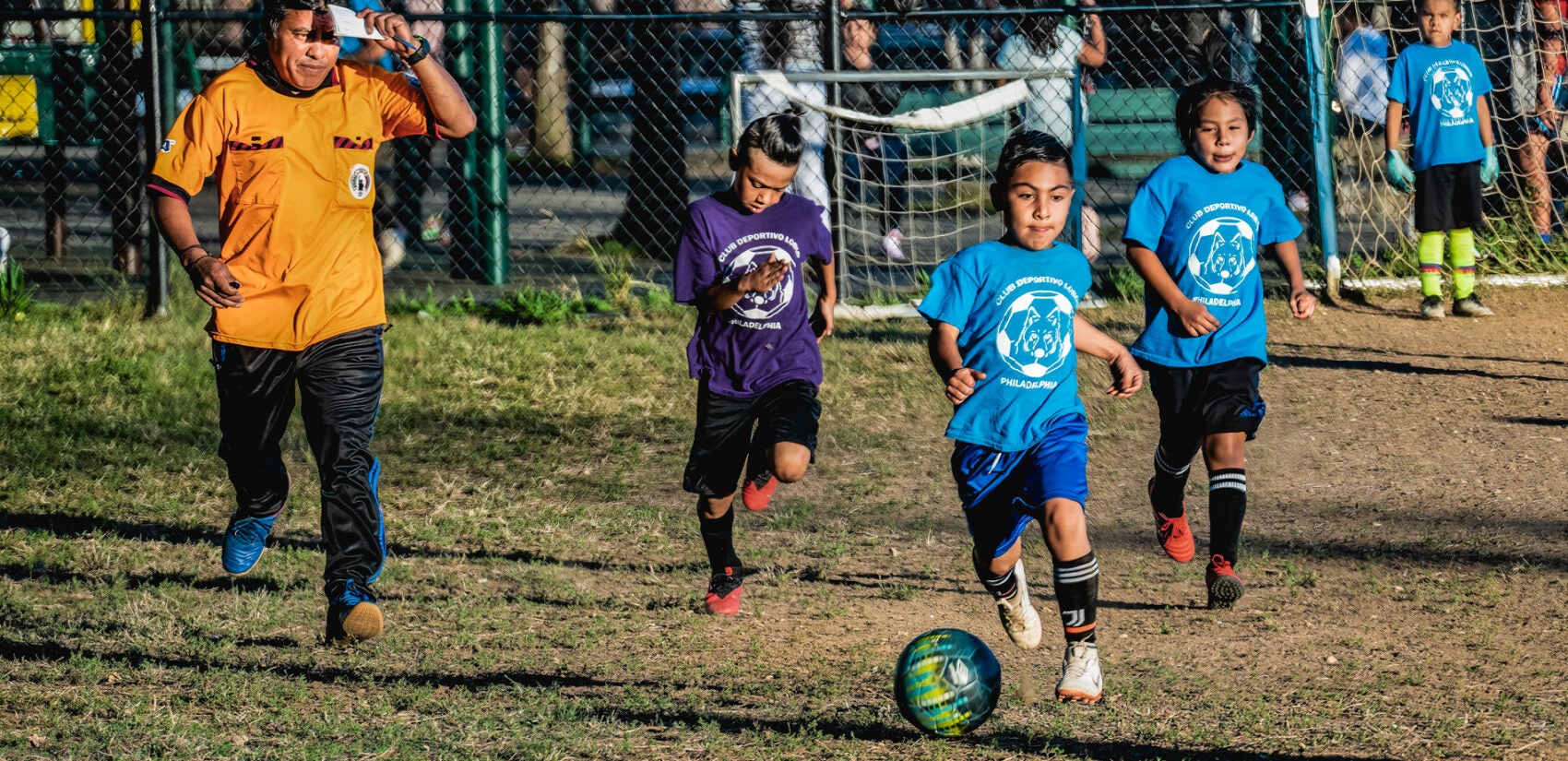
Uribe is the main organizer, channeling players into teams by age and abilities – edades y habilidades. Uribe tries to make sure the players on each team, in each age bracket, have roughly the same abilities, so the games can be competitive. “Ningún equipo tiene mejores jugadores, ningún equipo está mal parado”, dijo Uribe.
Uribe also coaches the best players in travel teams. Los Lobos compete in many regional tournaments — in Delaware, New York, New Jersey, Atlantic City, and Reading.
And they win. The team of children under the age of nine and the under-12 team both took first place, becoming the city champions in a Philadelphia-wide winter tournament. The girls’ team came in third.
“Entonces estoy super contento con eso”, dijo.
Like most youth sports leagues, Los Lobos counts on parents for support – shirts, cones and equipment. And Uribe himself has bought more than his share of soccer balls.
“Todo lo compramos entre los papás y yo, pero los papás son los que más aportan. Ellos me donan un balón por familia o nos donan un paquete de conos o todo el equipo que necesitamos para entrenar que no es mucho. Necesitamos un poco más, pero todo lo que tenemos, los papás lo van comprando. Las playeras, también ellos las pagan. Sí, básicamente los papás y yo somos los que estamos ayudando”.
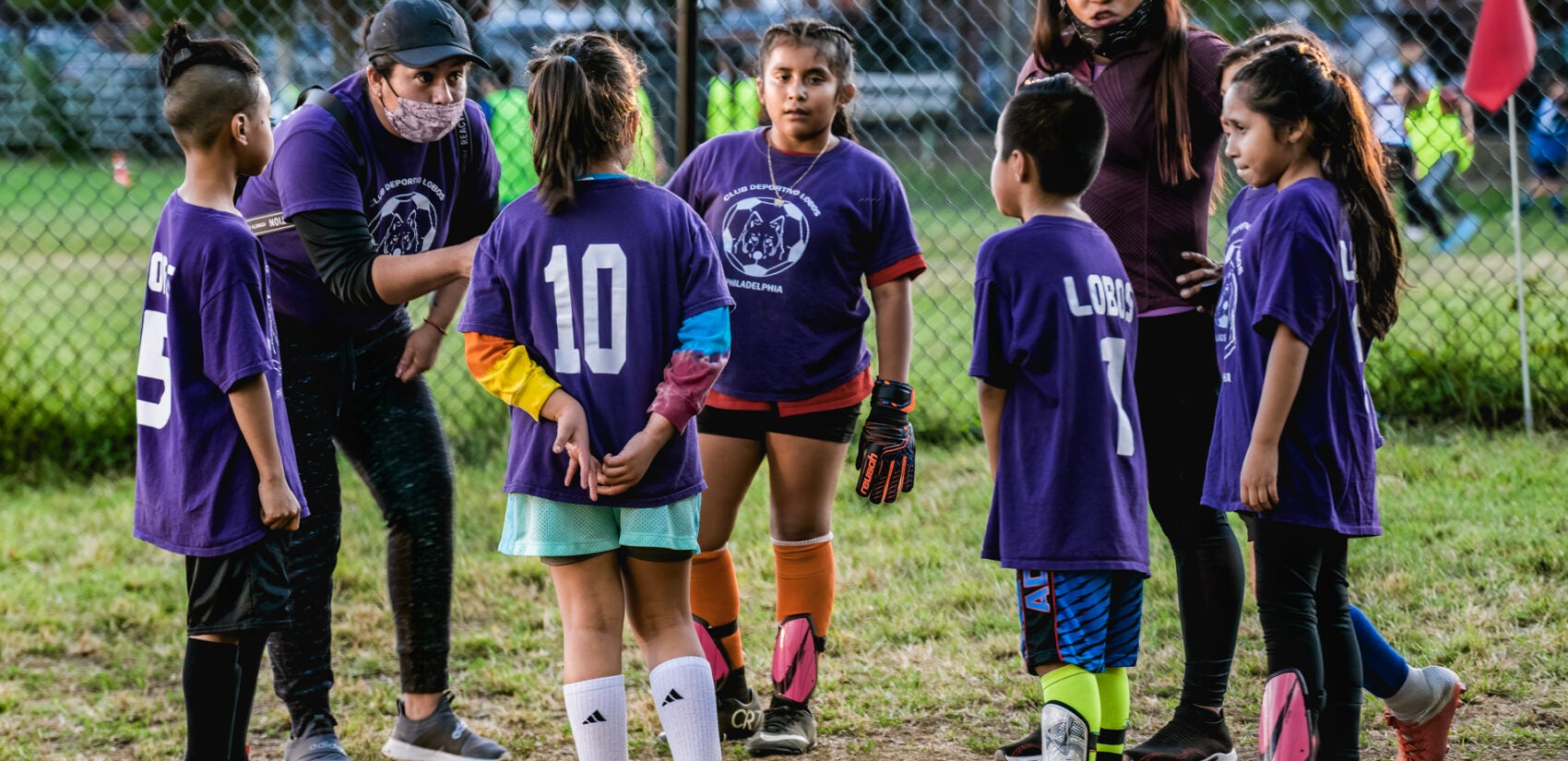
Like young athletes worldwide, Uribe himself dreamed of playing for his favorite team, or equipo. Of course, that would be Barcelona. But, as an adult, he had to admit the sad truth to himself.
“Te podré decir que para meter goles yo tengo dos pies izquierdos y no soy tan bueno”, dijo Uribe.
Even though Uribe says he played like he had two left feet, he still hopes to fulfill his ambitions by finding a fútbol star among his Los Lobos players.
“Yo soy un soñador. Me gusta soñar grande y sigo soñando. Todavía no he llegado a lo que me propongo”, dijo. Y me gustaría también que uno de mis niños soñara. ¿Por qué no jugar en el Barcelona que es mi equipo favorito?”.
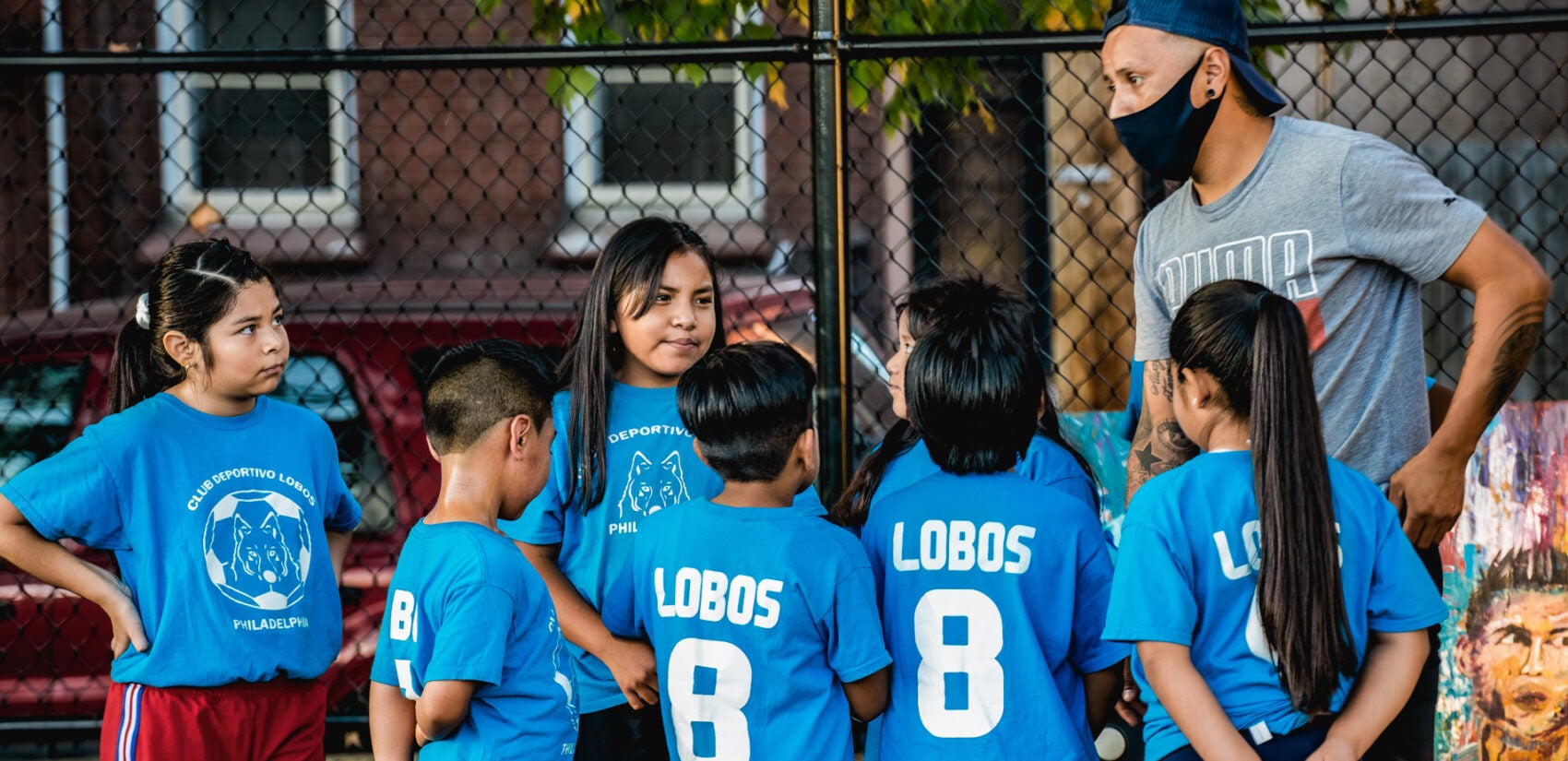
Meanwhile, Uribe, a mechanic and cook, keeps himself busy at Los Lobos’ home field: the Capitolo playground. The playground anchors a neighborhood, or vecindario, that has always been home to immigrants like Uribe. Capitolo sits at the southern end of the Italian Market, named after the Italian immigrants who once lived above their stores. Now there are also Mexican, Cambodian and Vietnamese markets nearby.
In 2000, when Uribe arrived in South Philadelphia, Mexicans were just beginning to move into the neighborhood – most of the Latinos living there were Puerto Rican. About half of Uribe’s neighbors were white. By 2018, Mexicans were the dominant Latino group. At the same time, more whites and Asians were moving in, while the Black population remained about the same, around 10%.
Black, white, Asian, or Latino, everyone plays fútbol.
“Nosotros tenemos de todas las nacionalidades. Tenemos chinos, tenemos morenos, tenemos centro americanos, americanos, tenemos de todo, todo”, dijo Uribe.
Uribe, a father of four, appreciates the way fútbol keeps his kids active.
“Te puedo decir que en las familias el rol que juega el fútbol es que los niños no están tan apegados a la televisión, al teléfono o a los equipos electrónicos”.
But, in a neighborhood like Uribe’s, fútbol serves a larger purpose – bringing together, or juntos, children and families from all different countries and groups. The children run, play, and make friends, or amigos. And the families become amigos as well.
“Yo en estos 10 años que llevo en el fútbol he visto a muchas familias hacerse amigas acá. Hacer nuevas amistades”.
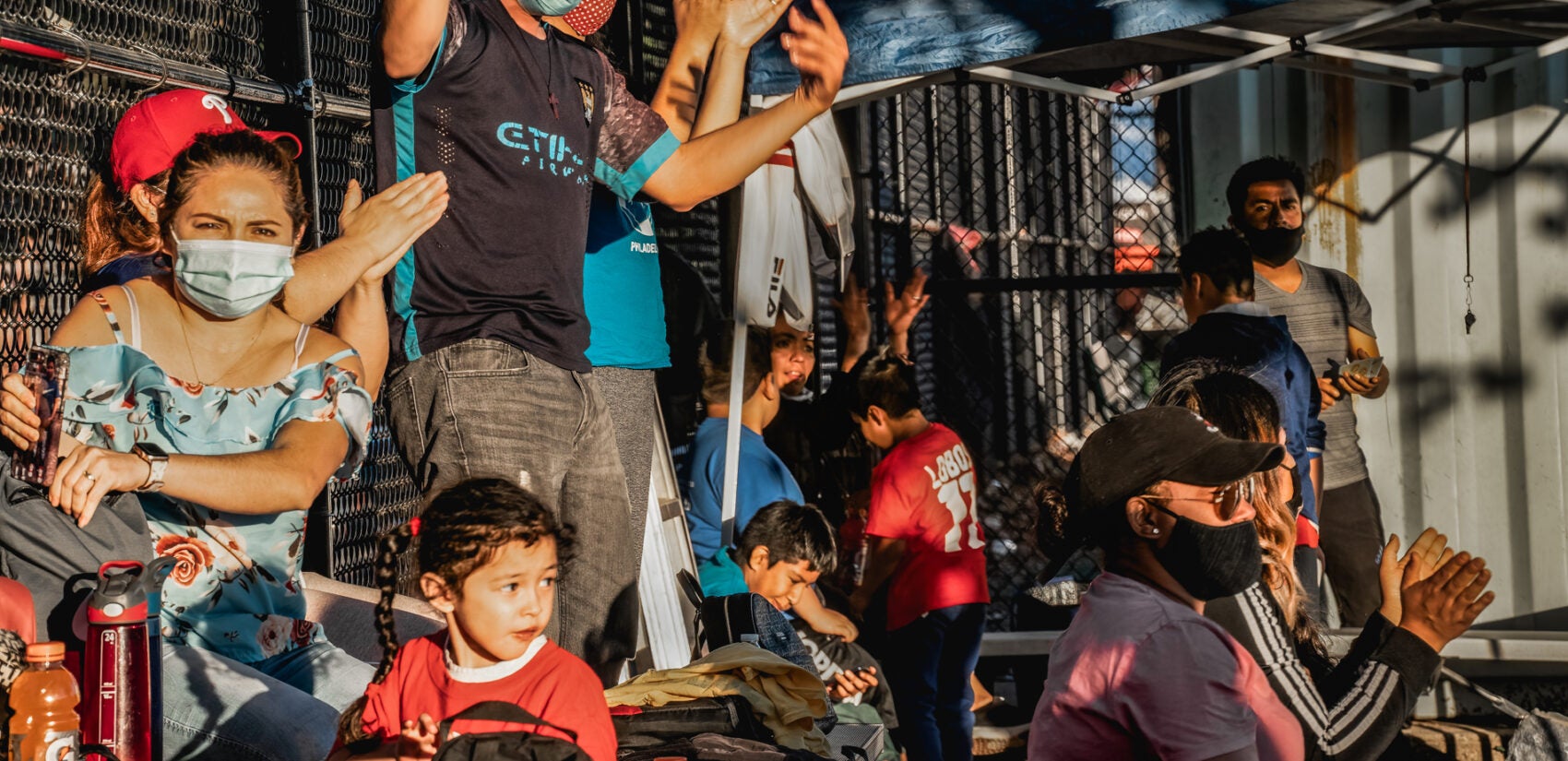
Sitting on the sidelines, watching the games, the parents talk. Soon there are invitations to birthday fiestas and family celebrations. Friendships form. Relations deepen.
“El grupo que yo tengo, todos son amigos. Se invitan a las fiestas, claro que en este momento no hacen fiestas, pero te podré decir que el año pasado fue bonito ver cómo los papás y los niños hacen amistad”, dijo.
To Uribe, this is the beautiful role that fútbol plays in his neighborhood.
“Y ese es un role muy bonito que el fútbol los une. Creo que a mí en lo personal me ha gustado mucho eso, aparte de que yo amo el fútbol y me gusta ver cómo a los niños les encanta lo que nosotros hacemos, pero también esa parte de que las familias se unan es lo que me ha gustado mucho y estamos unidos ahora”.
When Uribe came to Philadelphia in 2000, he just wanted to play soccer like he did at home in Mexico, maybe finding teammates among the other Mexicans who lived nearby. But now it’s the connections fútbol builds among people, cultures and nationalities that excite him the most.
“Y creo que me gusta más cuando otras personas de otras nacionalidades también se unen a nosotros. Y nos comunicamos y ahora hacemos parties, ya no nos separamos. Ya todos nos conocemos y nos llevamos bien. Bueno y lo poco que nos entendemos en inglés o que ellos entienden español, pero creo que tratamos de las dos partes comunicarnos y llevarnos bien”, dijo.
And, as Uribe says, “y nos llevamos bien, de maravilla.”
“And we get along. Marvelously.”

Subscribe to PlanPhilly
WHYY is your source for fact-based, in-depth journalism and information. As a nonprofit organization, we rely on financial support from readers like you. Please give today.







